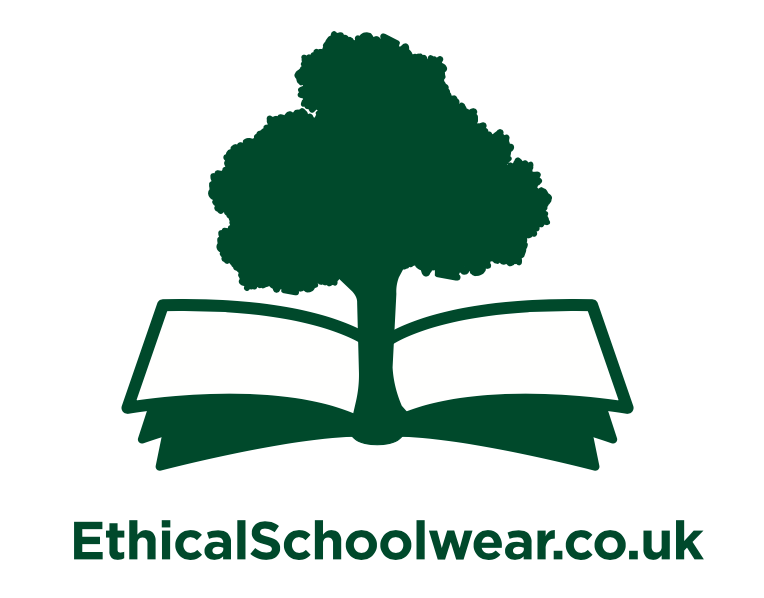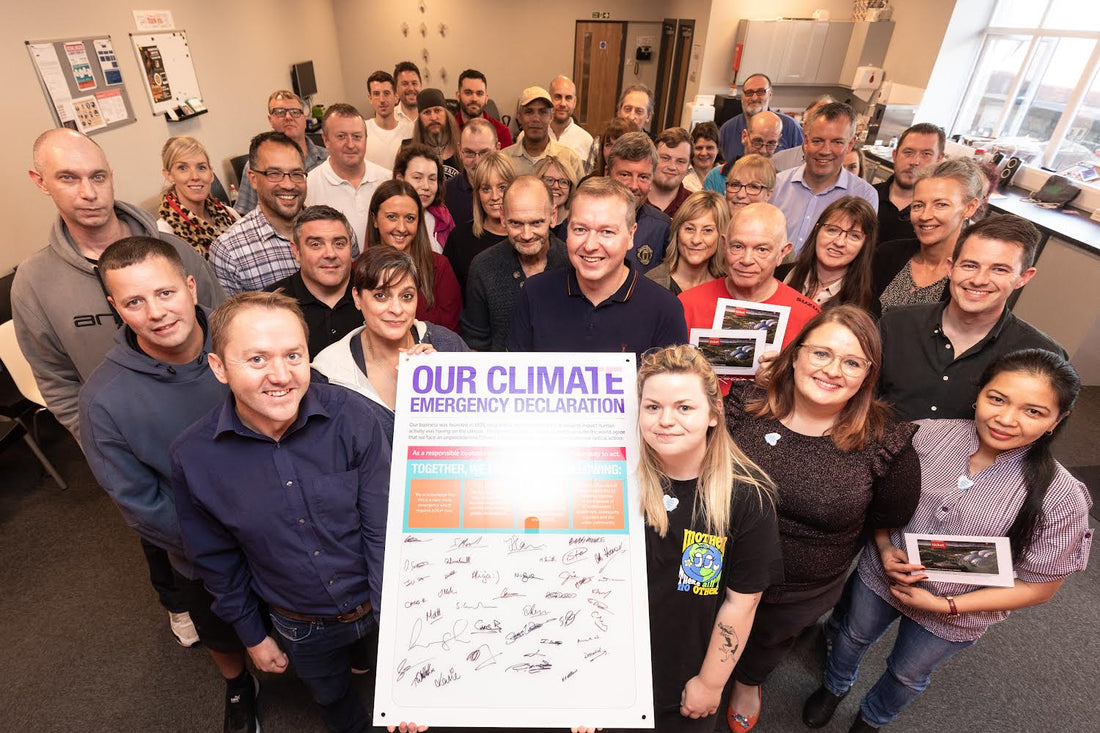Since I launched Ethical Schoolwear I’ve had one main supplier, One+All. I had struggled to get answers to my questions about school uniforms, but One+All was completely different. I find their whole approach refreshing. They are open, honest and transparent about the products they offer and how they’re made.
I was so grateful to Donald Moore, Chair at One+All, for taking the time to consider my questions and share his thoughts…
Can you share with us the journey towards becoming an employee-owned company? How has this structure influenced the company's operations and culture?
The leadership team approached the shareholders in 2015 to buy their shares to become employee owned, with no shareholders and for the good of everyone. This meant that we could secure our future, we would never be sold, we could share our profits with all colleagues tax free and we could save our profits to invest in our future and do more good. Since 2012 our customer satisfaction score has risen from 43% to 98% and employee satisfaction from just 34% to 100% and higher profits showing that business for good is great for business, happy people lead to happy customers. Not only that but people rarely leave, just an average of one per year which is about eight times lower than the national average. We have also attracted top talent who are like minded and who want to be proud of what we do and be happy at work.
As a B Corp certified company, One+All is committed to balancing profit with purpose. How do you integrate social and environmental considerations into your business practices?
A few years ago we were becoming more agitated about the climate crisis and wondered what we could do. We thought about going on strike but we thought we might get arrested. So we decided to close our business for the day to learn more of how to reduce our environmental impact at work and at home. We got guest speakers in, played environmental snakes & ladders and had a quiz. The first thing we did was to install PV solar panels to power our factory, offices and our fully electric cars. We benefited even more when the energy crisis led to much higher bills.
By 2019 we had been measuring and reducing our emissions but we wanted to learn more. We had heard about B Corp accreditation, and some great brands like Patagonia & Tony’s Chocolonely, which is the highest social and environmental standard so we decided to be assessed. We became a B Corp in August 2020 joining 6,000 companies in the world, at the time we were the highest scoring B Corp in the North of England and Scotland. The best thing about the assessment is that we review it and look for improvements which has increased our score from 107 to 130.
What motivated One+All to pursue Ethical Trading Initiative certification, and how does this contribute to your overall mission and values?
We work with the Ethical Trading Initiative to improve the rights of the workers in all our factories. This includes fair pay, paid on time and grievance rights. We have a modern day slavery policy and we audit the factories each year to check on minimum age, pay and health & safety.
Providing free sanitary products and water filters to workers in overseas factories demonstrates a commitment to supporting workers' well-being. Could you elaborate on the importance of these initiatives and their impact on the communities where your products are manufactured?
One of the things that make us different is the way we care about the workers in our supply chain in Bangladesh and Egypt. In Bangladesh we wanted to say thank you to the 300 workers who make great quality school uniform, with care. We learned that infant mortality is high and life expectancy is low, mainly connected to dirty water. So every year, for the past 10 years, we gift large water filter machines and replacement filters. We have gifted 1,000 machines and statistically we have saved and extended lives. Could you imagine if every brand did the same? We also have a female health education programme and we gift period products to the female workers.
In what ways does One+All engage with local communities, both in the areas where your products are manufactured and where they are sold, to promote social responsibility and positive impact?
We work with many local social enterprises and those in the voluntary, community, faith sectors. We help by volunteering, by raising much needed money for them but we get plenty back. We’ve learned a lot about people in need, those in poverty or in difficulties and that has helped us to help our colleagues when they have needed it.
As a leader in ethical school uniform manufacturing, what challenges have you encountered along the way, and how has the company addressed or overcome them?
We care about our home planet and we know that we have all damaged the planet. We’ve bought too much stuff we didn’t really need and we just throw things away rather than reusing or gifting them as second hand, especially clothes. In fact greed has caused the climate crisis and also the fact that over half of the world's population is in poverty.
We believe that all companies should be a business for good; caring more for employees, workers in our factories, customers, our communities and our home planet. That leads to happy people and happy customers which is good for business.
As individuals we can sometimes feel powerless. What advice would you give?
We think it’s our job to inspire others to be better employers. We campaign for the real living wage, for secure work, against poverty and to reduce inequalities. We work in a town called Stockport and people in one postcode actually live 13 years longer than another! That just can’t be right. Whatever you do, no matter how old you are, you can make a difference!
Good luck and together we can make the world a better place.

